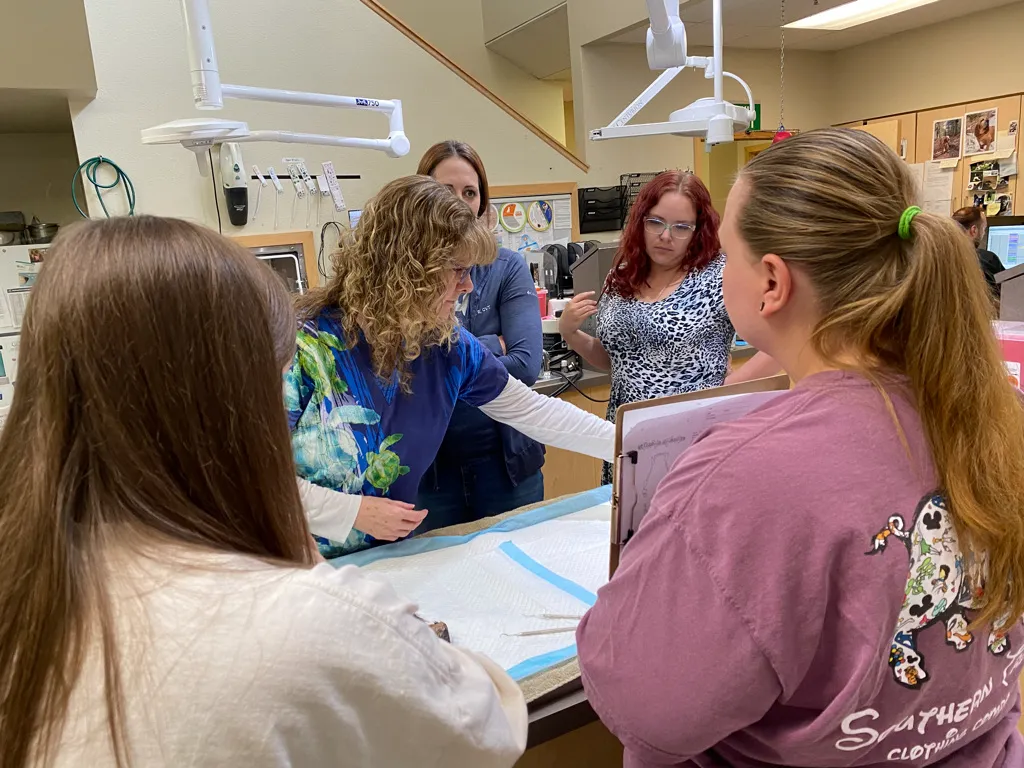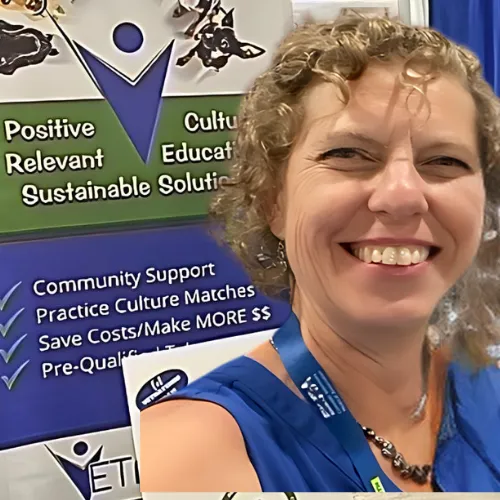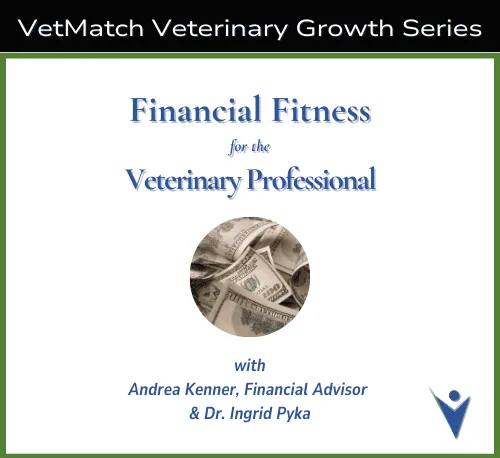
In another successful VetCHAT, Dr. Ingrid Pyka of VetMatch sat down with Dr. Beth Neuman to feature more about successful veterinary Mentorship Programs. Dr. Neuman is a Regional Head Mentor at the National Veterinary Associates (NVA), one of the world’s largest veterinary and pet care service companies. In Part I of this Perspective, we reviewed the topic from the perspective of the Mentee. Here, we dive into supporting the program as the Mentor.
Veterinary Mentorship Matters More than Ever Before
In a recent survey, the American Veterinary Medical Association (AVMA) found that a whopping 84% of veterinary graduates consider the level of mentorship they will receive when choosing the hospital to start their career. Access to mentorship even beat out location and compensation1.
Skilled Mentors help interns and new graduates tackle the frequent challenges they face at the start of their careers and dramatically reduce the time it takes for them to settle into their working environment. As they adjust, the interns and new graduates are also aided by the veterinary team. When the Mentor and the team can work together, the new hire has the greatest chance of success. This is more than a shared intent, but an organized program that every veterinary practice can implement.
In this difficult market where veterinary staff is so desperately needed, practices and Mentors cannot afford to ignore how much of a role effective mentorship plays in preparing our incoming professionals for a satisfying career in veterinary medicine. As a Veterinary Mentor, you make a significant difference when supporting an individual’s career path through their experiences.
Dr. Neuman feels that, to remain competitive in the job market, veterinary practices must embrace mentorship programs.
Follow a Vet Mentorship Program to Make Transitions Easier
Mentorship Programs guide Mentors to improve practice expectations with plans and schedules customized for newer skill levels. Having a plan through structured support promotes easier facilitations and maximizes success. Not only do doctors, specialists, technicians, and customer service staff have different needs and face unique situations, Mentors bring their own personalized expertise as well. Dr. Neuman suggests that Mentees be paired with Mentors who know the facility best, including the culture, treatment processes, and client relationships.
When these Mentors are prepared and excited to promote career growth, the Mentee generally responds well. It is crucial that these programs set a tone that offers the Mentor time and resources to fulfill their role.
As a Mentor, Have a Plan for Integrating Your Mentee
For best outcomes, Dr. Neuman emphasizes that Mentors should have training plans in place in advance, individualized for each Mentee. In one instance, you may partner with an intern in their first week to determine their caseload. With another, you may find more benefit with reviewing anesthesia protocols. Together, you review a checklist of expected tasks and how the Mentee can successfully implement them in the veterinary practice.
Setting timelines with reasonable benchmarks for techniques, procedures, and timing helps get things started. These schedules should serve as motivators but not looming pressure points. When reasonable, flexibility plays an important role in customizing for the individual. What worked, what didn’t, and how can the flow adjust to improve efficiency and the mentorship process?
Dr. Neuman has found that, with the NVA program she follows, she gets faster results when the Mentee initially follows the Mentor and only watches to start. Though it may seem counterproductive, she notes that allowing your new staff member a staged integration removes the stress of getting started in a new role and offers time to ask questions and gradually adapt. Confidence grows as the Mentee is encouraged to participate in and eventually perform responsibilities independently. VetMatch has found some of our private hospital partners also use the shadowing to gradual independence approach with great success.
Understand the Role of a Vet Mentor
Being a great Mentor requires understanding the meaning of the word mentorship. As we did in Part I link of this series, we emphasize Dr. Neuman’s definition:
“The sharing of gifts, ideas, and resources in a mutually beneficial way to ensure the success and development of the individual.”
Understand what you will be undertaking as a Mentor. You will be expected to offer support professionally, such as facilitating with your Mentee’s hands-on experiences, and answering questions on different medical and non-medical topics, including:
- Effective medical services with appropriate treatment and diagnostic plans
- How to settle into the current clinic or hospital’s culture
- Easing from academic to clinical as an independently practicing doctor
- How to discuss treatment plans with owners
- Learning to use new drugs and well-established protocols
- Faster appointments, surgical skills, and medical records
- Relationships with the client, practice manager, and other colleagues
- Appropriate scheduling and work-life balance
Technically, any of your team members is mentoring whenever they answer a question and provide support. Several onsite Mentors may be available to your Mentee; however, for the best learning, one person should remain the primary Mentor. This promotes consistency and allows you to set weekly or biweekly meetings to check in and see what’s happening and how you can help.
Keep in mind, as a Mentor, you do not need to be the sole lesson planner. In addition to the regular daily or weekly feedback loops you offer, let the Mentee know when and how they can approach you with questions during the shift. You likely have your own caseload. Be fair to yourself and schedule appropriately.
5 Practical Tips for the Vet Mentor
Mentorship is not about you as a Mentor; it’s about the Mentee. This is not all about medicine. Teach them to be mentally prepared to build confidence. Show them techniques you have had success with during client communication and how to understand the client’s relationship to their pets. In return, you will receive their enthusiasm to learn about new ideas and innovations in the field. Dr. Neuman adds:
- Mentor-Mentee Connection: Relationships and trust get stronger with in-person conversations. For off-site Mentors, if possible, meet in person for the first time or at least in a video conference to help solidify the relationship. Reconnect periodically with a pre-set schedule. By building trust this way, Mentees are more likely to reach out about specific issues by text and email as needed.
- Avoid micromanaging: Be sure to encourage Mentees to do research on their own. When safe for the patient, let the new doctor (or technician) learn by letting them make mistakes and then providing support when they ask for it—don’t hover. Fostering independence is one of the key aspects of nurturing confidence.
- Schedule appropriately: Beware of only teaching on the fly as you’re running into an exam room. Mentoring is paid time. Set a specific day and time to focus on the learnable moments. Find a location outside of appointments and procedures and away from the hubbub in the treatment area. This goes for Mentors, too!
- Support: Use your community and your own Mentors to support you too. No one is expected to know everything, so don’t let pride get in the way of your relationship.
- Listen: Remember – learning is lifelong. Mentees bring their own perspectives and new ideas that you may learn from as well. Let them show you a thing or too!
Be patient. Mentors must recognize that everyone has different needs, depending on their abilities and interests. You are learning about each other’s unique perspectives and listening to and respecting individual needs and concerns. You can always suggest your Mentee find a different Mentor if things don’t work out. It must be the right fit for both of you to be successful.
For all Mentors out there – thank you for supporting the future of our veterinary profession!
Helpful Resources to Kickstart Your Practice’s Mentorship Program
If your practice doesn’t have an established Mentorship Program, consider reaching out to organizations such as the American Animal Hospital Association (AAHA), American Veterinary Medical Association (AVMA’s) Mentorship program, corporations like NVA, as well as books such as Dr. Kate Boatright’s The Mentorship Manual.
You will find other programs through local veterinary support agencies like VetMatch for guidance in your personal situation.

